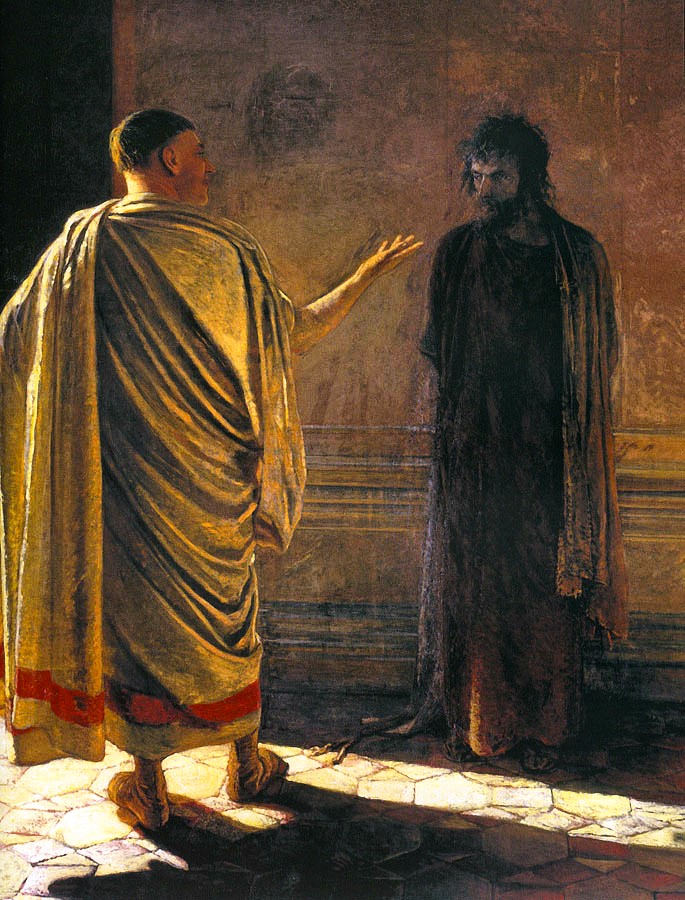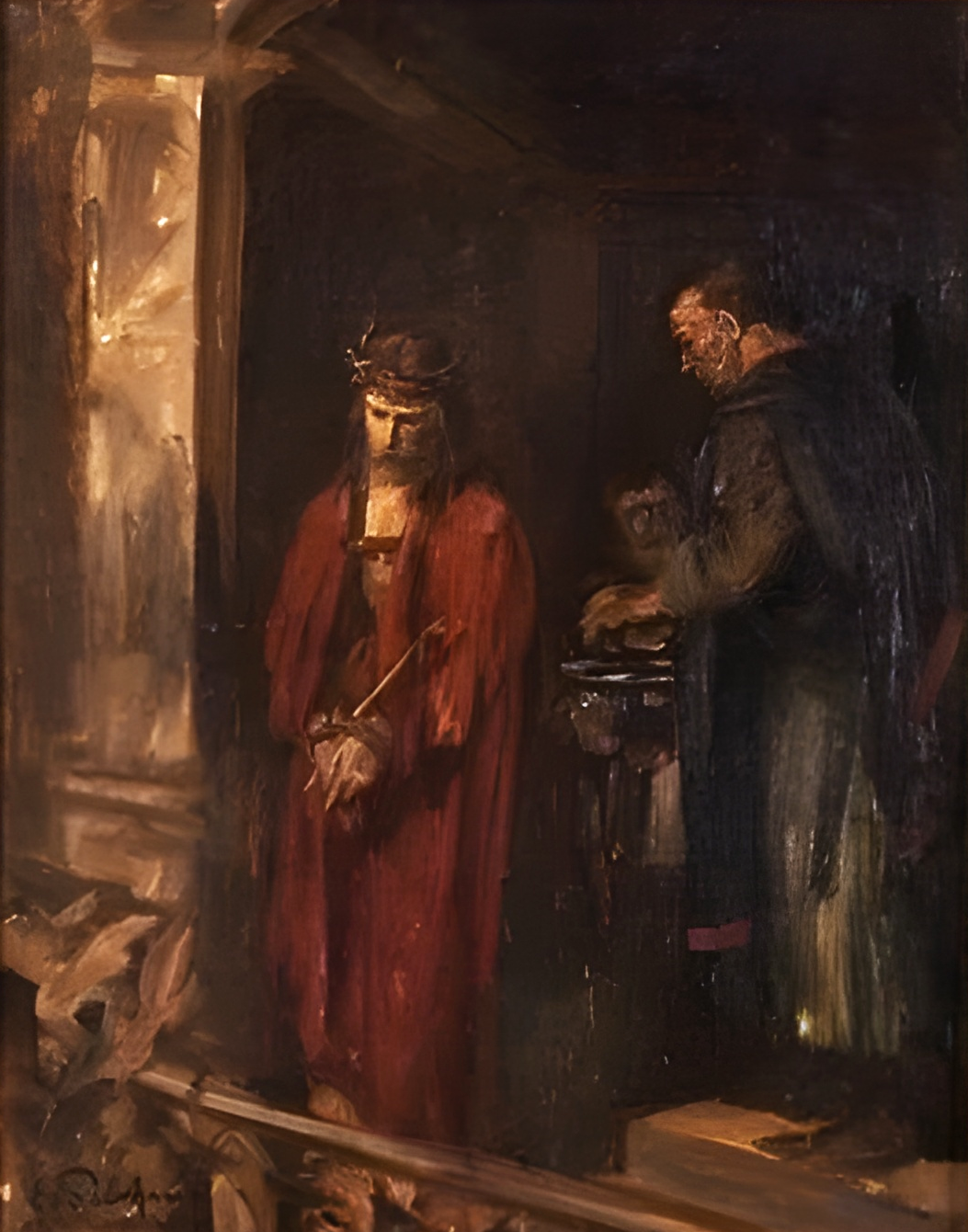Behold, But a Man
Pontius Pilate is altogether human, perhaps too human. He is a man of some knowledge, but not a man of conviction or ideals. Pilate knows that truth and justice are important but, likely due to being assigned to the provincial backwater of Roman Judaea, decidedly not Roman and filled with a plethora of competing political and religious worldviews, took a subjective stance on the issue. What mattered at the end of the day was not truth, but who wielded power. This was truth that could be known; because it was tangible; because it provided security and purpose.
The tussle of wills between himself and the Jews came down not to the truth of justice, but to the truth of who held power. Pilate holds power as the representation of Caesar – his rule is Caesar’s rule. Yet, he cannot simply order the Jews to follow the will of Caesar for the Sanhedrin have been permitted to control much, but not all, of daily religious life – and all of life for a Jew is religious – in Judea as a semi-independent authority and court of law. It is a tenuous relationship between antagonistic parties and one that comes to a head with the trial of Jesus.
The Sanhedrin has decided that Jesus must die for blasphemy for claiming to be the Son of God, yet a Roman governor would have no problem with such a claim, for Roman mythology is rife with gods in human form and sons and daughters of the gods. Thus, the pivot to the accusation that Jesus is a King, a figure, who by this very claim, sets himself at odds with the rule of Pilate and, ultimately, Caesar. Pilate doesn’t buy this nor the sense of impending peril that the Sanhedrin claim will come to pass should Jesus be allowed to live. He shows some wisdom.
Pilate doesn’t want to deal with the troubles of managing the Sanhedrin’s demands and seeks to find multiple ways around having to deal with them – for if they can leverage him to do their will, then his power, Caesar’s power, is diminished. This is sensed by the Chief Priests and the Jews of the crowd, for their argument for the death of Jesus shifts subtly: Should you not crucify this ‘troublemaker’, we will do everything that we are saying he would do. We have no king but Caesar, if you do our will. We will keep peace. We will pretend that you rule us if you but do our will and crucify this Jesus.
One of the fears of the Jewish leaders was that Jesus would be a political messiah, lead a revolt, and Rome would bring the weight of her legions down upon the peoples and grind them and the Holy City into dust (a fear which would come to pass a short few decades later during the First Jewish War when Titus marched on the city.) The it is better that one man should die than a people becomes Pilate’s rationale: better Jesus than him having to put down a rebellion caused by his refusal to crucify Jesus. Better to save their skin. Better to save his own skin. Perhaps the Jews were bluffing, and they wouldn’t actually revolt. Their leaders did not want the Roman legions to descend upon them; after all, that was one of the points of having Jesus executed. Pilate folds.
Despite the implied impending possibility of carnage, Pilate’s signing of Jesus’ execution order may not be considered an act of wisdom or prudence. It is a travesty of justice and a bending to mob rule. Pilate may have washed his hands, but he is not free from the blood guilt of having, through the color of law, condemned Jesus, who was innocent of the charges according to Roman law, to death. We also live in a world of pragmatic cowards who seek not to do the things that are true, beautiful, or good, let alone that which is simply “the law”, but who seek ways out of doing what is hard, of what is heroic. They seek Pilate’s way to maintain balance, to ensure the prolongation of the status quo. It is a false vision that looks to misguided earthly considerations, not willing to do the right thing when it is hard, when it is inconvenient, when there is possibility for costs.
Seeking truth, knowing truth, and following truth have consequences. Truth casts light into darkness and darkness revolts against such intrusion for light and dark cannot coexist. But turning aside from the truth, seeking to coexist with the darkness has far more deadly consequences; while there is light, hope remains for those that live in darkness, but when one willingly steps into the darkness, one leaves behind hope. The darkness eats at the soul; compromise begets more compromise until all is consumed and nothing of the truth remains.
Pilate leaves his encounter with Jesus a broken and hollowed man, seemingly wandering off stage left diminished and in confusion.
— PPP


